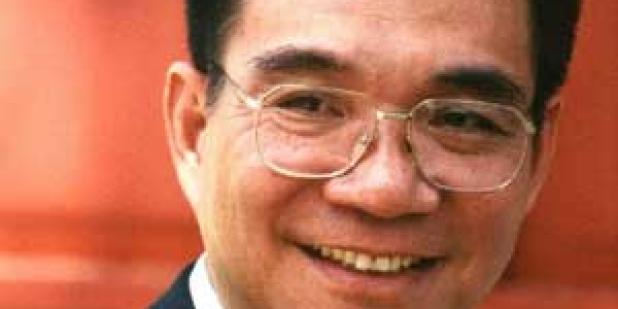Join us for a free one-day workshop for educators at the Japanese American National Museum, hosted by the USC U.S.-China Institute and the National Consortium for Teaching about Asia. This workshop will include a guided tour of the beloved exhibition Common Ground: The Heart of Community, slated to close permanently in January 2025. Following the tour, learn strategies for engaging students in the primary source artifacts, images, and documents found in JANM’s vast collection and discover classroom-ready resources to support teaching and learning about the Japanese American experience.
USCI Board Member Justin Yifu Lin named World Bank Chief Economist
Beijing University scholar played influential role in reforming the Chinese economy

On February 4, 2008, World Bank president Robert Zoellick announced that Justin Yifu Lin (林毅夫) will serve as the Bank’s new Chief Economist and Senior Vice President for Development Economics. Lin, a Chinese citizen, will take up the position at the end of May. His appointment represents a departure from previous practice. He is the first person from a developing country to hold the top economist position. Lin’s predecessors include Stanley Fischer (now Governor of the Bank of Israel), Lawrence Summers (former U.S. Treasury Secretary and Harvard University President), Joseph Stiglitz (Nobel Prize winning Columbia University economist), and François Bourguignon (now director of the Paris School of Economics).
In his announcement, Zoellick noted Lin is “an expert on economic development and particularly agriculture, [he] brings a unique set of skills and experience to the World Bank Group.” He continued, “I look forward to working closely with him on a number of areas, including growth and investment in
In an interview with Xinhua, the official Chinese news agency, Justin Lin focused on the World Bank’s mission to foster development and reduce poverty. He argued, "The World Bank has a clear and lofty objective of poverty alleviation, but without adequate understanding of the practical problems, the good intentions may go awry."
"
"I will promote cooperation between the World Bank and
Justin Lin has long been an influential economist in
In January 2006, Justin Lin came to USC through the Provost’s Distinguished Visitors Program. He worked with faculty and graduate students and spoke at a joint Center for International Studies/East Asian Studies Center meeting on “The Eleventh Five-Year Plan and the Future of the Chinese Economy.” USC Vice President for Academic Planning and Budget Elizabeth Garrett recruited him at that time to serve on the U.S.-China Institute’s Board of Scholars. Economists Guofu Tan and John Strauss are among those at USC who have worked closely with Lin and his team at
Journalists routinely turn to Lin for his take on major trends and policies. In 2007 he was outspoken in pushing for a reduction in economic inequality and in reining in grandiose rural building programs. He’s advocated increasing the sophistication of
Lin was born and raised in
In addition to his academic posts, Lin has been a delegate to the Chinese People’s Political Consultative Congress. Lin’s wife, Chen Yunying (陳雲英), is a well-known researcher in special education.
Click here to download a copy of Professor Lin's Marshall Lectures, the foundation of his USC April 8, 2008 lecture.
The talk was widely reported:
SingtaoUSA 星岛网, April 9, 2008
VOA News, April 9, 2008
The China Press 侨报, April 9, 2008
Free News 免费新闻 , April 9, 2008
Featured Articles
Please join us for the Grad Mixer! Hosted by USC Annenberg Office of International Affairs, Enjoy food, drink and conversation with fellow students across USC Annenberg. Graduate students from any field are welcome to join, so it is a great opportunity to meet fellow students with IR/foreign policy-related research topics and interests.
RSVP link: https://forms.gle/1zer188RE9dCS6Ho6
Events
Hosted by USC Annenberg Office of International Affairs, enjoy food, drink and conversation with fellow international students.
Join us for an in-person conversation on Thursday, November 7th at 4pm with author David M. Lampton as he discusses his new book, Living U.S.-China Relations: From Cold War to Cold War. The book examines the history of U.S.-China relations across eight U.S. presidential administrations.




